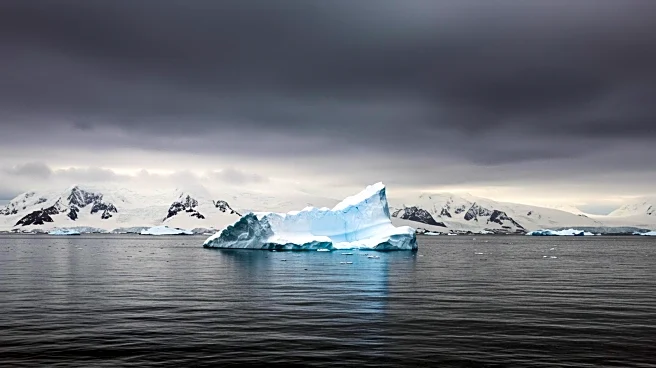What's Happening?
A study published in Nature warns of abrupt and potentially irreversible changes in Antarctica due to climate change, which could lead to significant sea level rise. The study highlights regime shifts in sea ice, ocean currents, ice sheets, and marine life. Scientists emphasize the need to limit CO2 emissions to prevent global warming from exceeding 1.5 degrees Celsius. The study reveals that Antarctic sea ice has retreated dramatically, accelerating global warming and threatening marine species.
Why It's Important?
The potential collapse of the West Antarctic Ice Sheet poses a major threat, as it could lead to several meters of sea level rise, impacting coastal communities worldwide. The study underscores the urgency of addressing climate change to prevent catastrophic environmental and societal consequences. The findings may influence global climate policy and drive efforts to reduce greenhouse gas emissions. The impact on marine ecosystems could have long-term effects on biodiversity and food security.
What's Next?
The study calls for immediate action to reduce emissions and mitigate climate change impacts. International collaboration may be necessary to implement effective climate policies and protect vulnerable regions. Scientists will continue to monitor Antarctic changes to better understand their implications and inform policy decisions.
Beyond the Headlines
The study raises ethical questions about the responsibility of current generations to address climate change for the sake of future generations. It also highlights the interconnectedness of global ecosystems and the need for comprehensive environmental stewardship.










